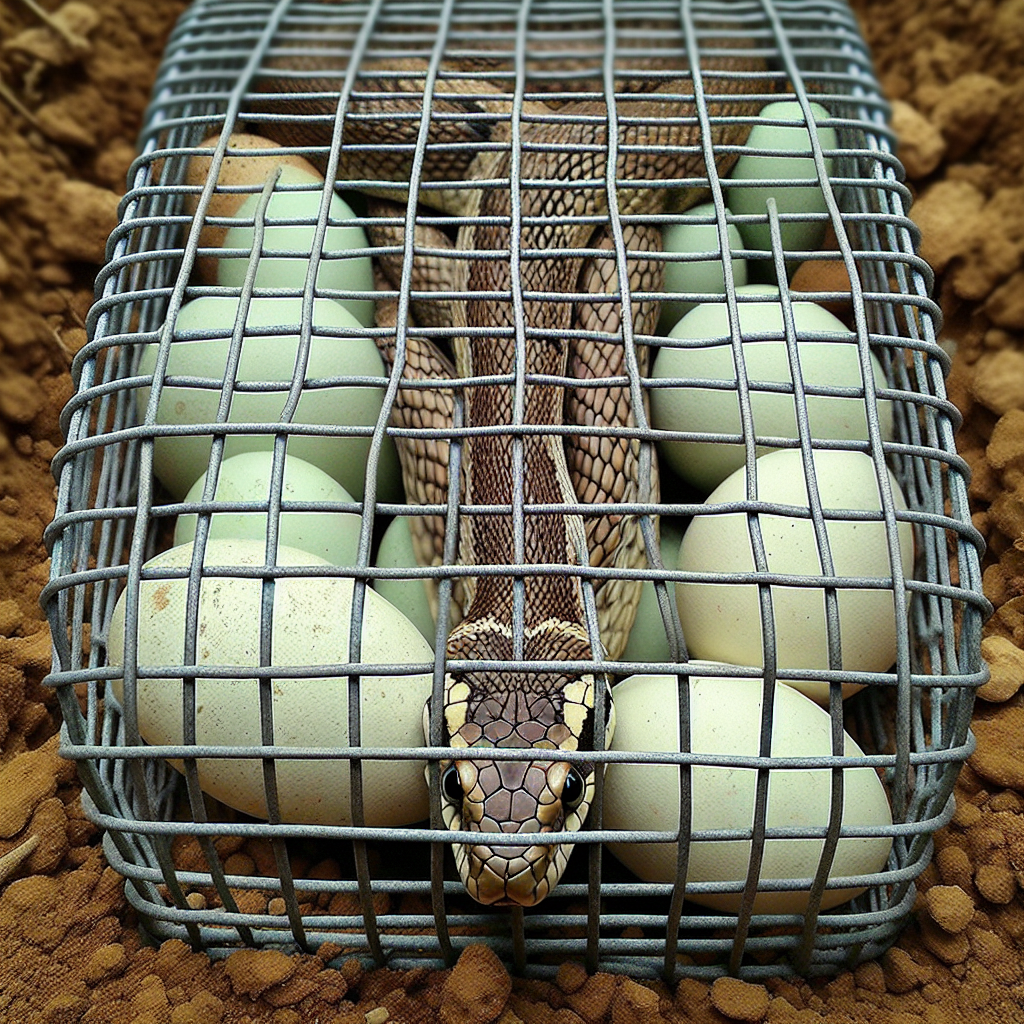Have you ever wondered how you can make your neighborhood a safer place for chickens? Are you eager to educate and collaborate with your neighbors to create a secure environment for these delightful creatures? In this article, we will explore some practical strategies and tips on how you can effectively engage with your community to ensure the safety and well-being of chickens in your area. So, if you’re ready to make a positive impact and cultivate a harmonious relationship with your neighbors, let’s get started!
Educating the Neighbors
Knowing the Basics of Chicken Care
To create a safer environment for chickens in your neighborhood, it is essential to educate your neighbors about the basics of chicken care. This includes providing information about their housing needs, proper feeding and watering, and common health issues. By ensuring that your neighbors have a solid understanding of the essentials, you can help prevent accidents or neglect that may harm the well-being of the chickens.
Hosting Informative Workshops
One effective way to educate your neighbors about chicken care is by hosting informative workshops. These workshops can cover a wide range of topics, such as coop building, predator prevention, and even egg collection. By sharing your knowledge and expertise, you can empower your neighbors to become responsible and confident chicken keepers. Consider inviting experienced chicken owners or local experts to speak at these workshops to provide a well-rounded perspective.
Sharing Online Resources
In addition to hosting workshops, it is important to share online resources with your neighbors. This can include articles, blogs, videos, and forums dedicated to chicken care. Online resources provide a convenient platform for your neighbors to access information at their own pace. Encourage them to join online communities where they can connect with other chicken owners, ask questions, and share their experiences.
Organizing Farm Visits
To further educate your neighbors about chicken care, consider organizing farm visits. These visits provide an opportunity for people to see firsthand how chickens are kept and cared for in a safe and responsible manner. By observing well-maintained coops, healthy chickens, and sustainable practices, your neighbors can gain valuable insights and gain inspiration for their own chicken-keeping endeavors.
Collaborating and Building Relationships
Initiating Community Discussions
Creating a safer environment for chickens entails building strong relationships with your neighbors. To initiate community discussions, organize meetings or gatherings where neighbors can come together to share their thoughts, concerns, and experiences regarding chicken keeping. By facilitating open and respectful communication, you can address any potential conflicts, dispel misconceptions, and foster a sense of collective responsibility for the welfare of the chickens.
Forming a Neighborhood Chicken-Keeping Group
To further collaboration and support, consider forming a neighborhood chicken-keeping group. This group can serve as a platform for sharing knowledge, advice, and resources among chicken owners in your community. Regular meetings can be held to discuss various topics related to chicken care, address challenges, and celebrate successes. Through this group, neighbors can form stronger bonds and work together to maintain a safe and nurturing environment for their chickens.
Creating a Shared Equipment Library
Another collaborative effort that can benefit all chicken owners in the neighborhood is the creation of a shared equipment library. This library can include essential items such as chicken feeders, waterers, and coop supplies. By sharing these resources, neighbors can save costs and ensure that all chickens in the community have access to necessary equipment. Establish guidelines for borrowing and returning items to ensure fairness and accountability.
Developing a Mentorship Program
To support new and inexperienced chicken owners, consider developing a mentorship program within your neighborhood. Experienced chicken keepers can volunteer to mentor those who are just starting their chicken-keeping journey. This mentorship program can provide hands-on guidance, answering questions, and offering practical advice tailored to the specific needs of each mentee. By fostering mentorship relationships, you can create a supportive network within the community and ensure that chickens receive proper care and attention.
Addressing Common Concerns and Misconceptions
Dispelling Myths about Chickens
Many common concerns and misconceptions surround chicken keeping. It is crucial to address these and provide accurate information to alleviate any fears or hesitations. Common myths, such as chickens being noisy, dirty, or attracting pests, can be dispelled through education and personal experiences. By sharing success stories and providing factual evidence, you can help your neighbors understand the realities of chicken keeping and overcome any misconceptions they may have.
Explaining the Benefits of Chickens
Alongside dispelling myths, it is important to explain the many benefits of having chickens in the neighborhood. Chickens can provide a sustainable source of fresh eggs, reduce food waste through composting, and contribute to a more self-sufficient and environmentally friendly community. Highlighting these benefits can help your neighbors appreciate the positive impact that chickens can have on their lives and the community as a whole.
Addressing Noise and Odor Concerns
Noise and odor concerns are common among individuals considering chicken keeping. By explaining proper coop design, maintenance, and waste management practices, you can address these concerns effectively. Encourage the use of well-ventilated coops, proper waste management, and regular cleaning routines as ways to minimize both noise and odor issues. Emphasize the importance of responsible and considerate chicken keeping to ensure a harmonious coexistence with your neighbors.
Mitigating Predation Risks
One of the main concerns for chicken owners is protecting their flock from predators. Educate your neighbors about the potential risks and offer suggestions for mitigating these risks, such as installing secure fencing, using predator-proof coop designs, and implementing nighttime safety measures. By sharing effective strategies and providing guidance on predator prevention, you can help create a safer environment for the chickens in your neighborhood.
Implementing Safety Measures
Securing Chicken Coops and Runs
Creating a safe environment for chickens involves implementing proper security measures for their coops and runs. Advise your neighbors on the importance of securely fencing their chicken areas and using locks or latches to prevent intrusions. Encourage regular inspections to identify and repair any potential weak points or vulnerabilities. By emphasizing the significance of a secure physical barrier, you can help minimize the risk of predators or other animals gaining access to the chickens.
Using Non-Toxic Pest Control Methods
Pest control is an important aspect of maintaining a safe and healthy environment for chickens. However, it is crucial to opt for non-toxic pest control methods to ensure the well-being of the chickens. Educate your neighbors about alternative approaches, such as companion planting, natural predators, and mechanical barriers, to control pests without resorting to harmful chemicals. By promoting environmentally friendly pest control practices, you can minimize any potential health risks to the chickens.
Promoting Responsible Waste Management
Proper waste management is essential for maintaining a clean and hygienic environment for chickens. Educate your neighbors about the importance of regular cleaning and disposal of chicken waste. Advise them on composting techniques to turn chicken manure into valuable fertilizer for their gardens. Emphasize the need to handle waste responsibly to prevent odor issues and potential health hazards for both humans and chickens.
Installing Proper Lighting and Ventilation
Proper lighting and ventilation are crucial for the health and well-being of chickens. Educate your neighbors about the importance of natural light and fresh air circulation in the chicken coop. Encourage them to design and maintain their coops in a way that allows for adequate ventilation and natural light. Explain the benefits of a well-ventilated and well-lit environment, such as reducing humidity, preventing respiratory issues, and promoting overall chicken health.
Ensuring Legal Compliance
Understanding Local Zoning and Ordinances
Before keeping chickens in your neighborhood, it is essential to understand the local zoning laws and ordinances related to poultry keeping. Research and share information about the requirements for coop size, setback distances, and flock size limitations. By ensuring compliance with these regulations, you can create a safe and legal environment for chickens without causing any conflicts with local authorities or neighbors.
Obtaining Necessary Permits and Licenses
Some jurisdictions may require permits or licenses for individuals to keep chickens. Familiarize yourself and your neighbors with the process of obtaining these permits and licenses, if necessary. Provide guidance on the application procedures and necessary documentation to ensure that everyone is in full compliance with local regulations. By obtaining the necessary permits and licenses, you can demonstrate responsible chicken keeping and avoid any potential legal issues.
Following Health and Safety Regulations
To maintain a safe environment for chickens, it is important to follow health and safety regulations. Educate your neighbors about the importance of regular health check-ups, vaccination protocols, and disease prevention measures. Emphasize the need for hygiene practices, such as handwashing, when handling chickens or their eggs. By promoting adherence to health and safety regulations, you can reduce the risk of disease outbreaks and ensure the overall well-being of the chickens.
Respecting Property Boundaries
Respecting property boundaries is essential when keeping chickens in a neighborhood. Educate your neighbors about the importance of ensuring that chickens do not roam onto neighboring properties. Discuss the use of proper fencing or containment systems to prevent chickens from trespassing and causing potential conflicts. By fostering a culture of respect for property boundaries, you can maintain positive relationships with your neighbors and minimize any nuisance issues.
Sharing Responsibility for Chicken Care
Setting Up a Neighborhood Schedule for Chicken Sitting
Chicken sitting can be an enjoyable and educational task for members of the community. Create a neighborhood schedule for chicken sitting, allowing individuals to take turns in caring for each other’s chickens when necessary. This shared responsibility ensures that the chickens are well-cared for even when the owners are away. It also provides an opportunity for everyone to learn about different breeds and gain practical experience in chicken care.
Establishing Mutual Support Networks
Establishing mutual support networks among chicken owners is essential for creating a safer environment for the chickens. Encourage your neighbors to rely on each other for advice, assistance, and emergency situations. By fostering a sense of community and collaboration, you can ensure that nobody feels overwhelmed or alone in their chicken-keeping journey. These support networks can be a valuable source of knowledge and camaraderie.
Promoting Responsible Feeding and Watering
Proper feeding and watering practices are vital for maintaining the health and well-being of chickens. Educate your neighbors about the nutritional needs of chickens and advise them on appropriate feeds and watering systems. Emphasize the importance of providing clean and fresh water daily and feeding a balanced diet. By promoting responsible feeding and watering practices, you can help prevent malnutrition and ensure the overall health of the chickens.
Providing Emergency Contact Information
In the event of an emergency, it is important to have easy access to contact information for local veterinarians, veterinary clinics, and animal control agencies. Compile a list of emergency contact information and share it with your neighbors. This ensures that immediate assistance can be sought if any health or safety issues arise. Having this information readily available can potentially save the lives of chickens in critical situations.
Fostering Awareness of Chicken Welfare
Educating on Ethical Practices and Animal Rights
Fostering awareness of chicken welfare involves educating your neighbors about ethical practices and animal rights. Discuss the benefits of providing spacious and enriched environments for chickens, advocating against overcrowding and battery cage systems. Share information about the ethical treatment of chickens, including avoiding unnecessary stress and pain. By promoting ethical practices and raising awareness about animal rights, you can ensure that chickens are treated with compassion and respect.
Encouraging Proper Handling and Grooming Techniques
Proper handling and grooming techniques are crucial for maintaining the emotional well-being of chickens. Educate your neighbors on gentle handling techniques, demonstrating how to pick up and hold chickens without causing distress. Share information on safe grooming practices, such as nail trimming and feather maintenance. By encouraging proper handling and grooming techniques, you can reduce stress levels and promote a positive relationship between humans and chickens.
Promoting Emotional Well-being of Chickens
Chickens, like any other living beings, have emotional needs that should be addressed. Educate your neighbors on the importance of providing a stimulating and enriching environment for chickens. Discuss the benefits of allowing chickens to engage in natural behaviors like dust bathing, foraging, and perching. Encourage the use of environmental enrichment tools, such as toys or plants, to promote mental stimulation and emotional well-being. By fostering an understanding of chicken emotions, you can create a happier and healthier chicken community.
Advocating for Humane Slaughter Practices
If your community practices backyard chicken keeping for meat, it is essential to advocate for humane slaughter practices. Educate your neighbors about the importance of minimizing pain and stress during the slaughter process. Share information on ethical and humane methods, such as using a sharp knife for a swift and painless kill. By promoting humane slaughter practices, you ensure that the chickens are treated with dignity and respect until the end of their lives.
Engaging with Local Authorities and Organizations
Building Relationships with Animal Control Agencies
Building positive relationships with local animal control agencies is crucial for creating a safe environment for chickens. Reach out to these agencies, introduce yourself as a responsible chicken owner, and offer to share information about your chicken-keeping practices. By establishing a good rapport, you can ensure that these authorities view your community’s chicken keeping efforts in a positive light. This can also lead to better support and cooperation in emergencies or conflicts involving chickens.
Collaborating with Agricultural Extension Services
Agricultural extension services offer valuable resources and expertise in the field of poultry farming. Reach out to these services and inquire about any programs or workshops they offer regarding chicken keeping. By collaborating with agricultural extension services, you can access professional advice, gain insights into best practices, and stay updated on the latest research and innovations in the field. This collaboration can further enhance the knowledge and skills of both experienced and novice chicken owners in your neighborhood.
Supporting Local Urban Farming Initiatives
Supporting local urban farming initiatives can play a significant role in creating a safer environment for chickens. Get involved in community efforts to promote sustainable and responsible urban farming practices. By supporting these initiatives, you can strengthen the overall urban farming community and advocate for policies that protect the well-being of chickens. Participate in local events, workshops, and fundraisers that aim to promote urban farming and responsible chicken keeping.
Participating in Community Events
Participating in community events is an excellent way to engage with your neighbors and showcase the positive aspects of chicken keeping. Organize or participate in events such as farmer’s markets, fairs, or community showcases where you can educate others about the benefits and joys of chicken keeping. Showcasing well-maintained coops, healthy chickens, and sustainable practices can inspire and encourage others in the community to embrace responsible chicken keeping.
Sharing Success Stories and Challenges
Creating a Neighborhood Newsletter or Blog
Creating a neighborhood newsletter or blog dedicated to chicken keeping is an effective way to share success stories and challenges. Collaborate with your neighbors to contribute articles, tips, and personal experiences related to chicken care. This platform allows for ongoing education, celebrating achievements, and addressing common challenges. By sharing these stories, you can inspire and inform others in the neighborhood, fostering a supportive and engaged chicken-keeping community.
Organizing Chicken Coop Tours and Showcases
Organizing chicken coop tours and showcases offer an opportunity for neighbors to see different coop designs and exchange ideas. Encourage individual chicken owners in the community to open their coops for public tours. This allows others to learn from their setups and gain insights into effective coop designs, predator prevention methods, and overall chicken care practices. Coop tours and showcases can inspire creativity and offer practical solutions to common challenges.
Hosting Chicken-Keeping Contests
Hosting chicken-keeping contests can add excitement and friendly competition within the community. Consider organizing contests for categories such as “Best Coop Design,” “Most Beautiful Flock,” or “Egg Decorating.” These contests can be a fun way to celebrate the efforts and creativity of chicken owners while exchanging tips and ideas. By hosting these contests, you bring the community together and highlight the positive aspects of chicken keeping.
Learning from Failures and Finding Solutions
Learning from failures and finding solutions is an important aspect of creating a safer environment for chickens. Encourage open discussions about challenges or past mistakes during community meetings or online forums. By sharing these experiences, everyone can learn valuable lessons and brainstorm solutions together. Foster a non-judgmental environment where neighbors can seek advice and support when facing difficulties. This collaborative approach ensures continuous improvement and the well-being of the entire chicken community.
Continual Education and Learning
Attending Local Poultry Workshops and Conferences
To stay updated on the latest developments in chicken care, encourage your neighbors to attend local poultry workshops and conferences. These events provide opportunities to learn from experts in the field, get hands-on training, and network with other chicken owners. By fostering a culture of continual learning, you can ensure that the knowledge and practices within your community remain current and effective.
Encouraging Continuing Education for Neighbors
Encourage your neighbors to pursue continuing education opportunities related to chicken keeping. This can include online courses, webinars, or books on topics such as advanced chicken health, breed-specific care, or sustainable coop design. By investing in their knowledge and skills, your neighbors can become more confident, responsible, and knowledgeable chicken owners. Share recommendations and resources to support their ongoing education.
Participating in Online Chicken-Keeping Forums
Online chicken-keeping forums offer a wealth of information and a platform for exchanging ideas and experiences. Encourage your neighbors to join these forums to connect with other chicken owners and seek advice from experienced individuals. These forums provide a valuable space to ask questions, share stories, and learn from a diverse community of chicken keepers. Participating actively in online forums can be a valuable source of ongoing education and support.
Supporting Research and Scientific Studies
Supporting research and scientific studies in the field of chicken care contributes to the overall knowledge and understanding of best practices. Encourage your neighbors to stay informed about ongoing research and support initiatives that aim to improve chicken welfare. By staying involved and supporting scientific advancements, you can help shape the future of chicken care and foster a safer and more sustainable environment for all chickens.
In conclusion, educating and collaborating with neighbors is essential for creating a safer environment for chickens in your neighborhood. By sharing knowledge, dispelling myths, and addressing concerns, you can empower your neighbors to become responsible chicken owners. Through collaboration, establishing shared resources, and forming mentorship programs, you can build a strong community of chicken keepers who support and learn from each other. Implementing safety measures, ensuring legal compliance, and sharing the responsibility for chicken care further contribute to the overall well-being of the chickens. By fostering awareness of chicken welfare, engaging with local authorities and organizations, and sharing success stories, you can inspire others to embrace responsible and ethical chicken keeping. Continual education and learning, along with supporting research and scientific studies, ensure that your community stays informed and adapts to the evolving best practices in chicken care. Together, with your neighbors, you can create a vibrant and safe environment for chickens to thrive.




